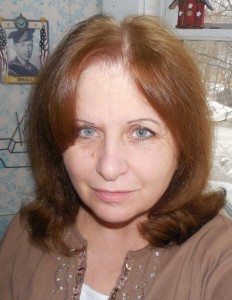
Have you been thinking of going the self-publishing route? Read the answers to these last six questions from our 30 awesome self-published authors:
9. Let’s talk money. How much more profitable has self-publishing been for you than traditional publishing? If you have never been traditionally published, have you found self-publishing to be worthwhile? Please give examples.
10. Do you support your family with your self-published earnings?
11. What has been the most difficult part of self-publishing for you?
12. What has been the most exciting or rewarding part of self-publishing for you?
13. There has been a stigma on self-published books making them seem of a lesser value than those traditionally published. Why do you believe this is so? With the advent of e-books and the saturation of easy-to-self-publish books, do you find this still to be true?
14. What question have I not asked that you’d like to pose and then respond to?
1. Sherry Ficklin
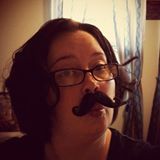 9. Let me give you an honest breakdown of an average quarter of my small press trilogy (three books) versus sales on my ONE self published title.
9. Let me give you an honest breakdown of an average quarter of my small press trilogy (three books) versus sales on my ONE self published title.
Trilogy- $28.16 (and that was a fairy average quarter)
Single self published title- $51.92
Now that is one heck of a difference. However, I’m going to go one step further. Quarterly sales (not royalties because it’s not released yet) between my new single title novel with a mid-list publisher and my self-published novel.Single title with mid-list publisher (one quarter of pre-sales)- over 500 PRINT copies (pre)sold
Single title self published (one quarter of sales)- 66 e-book copies sold, 0 print copies sold.
Trilogy (That’s 3 books!) with small POD publisher(one quarter sales)- 28 copies sold, 10 e-book, 18 print (sold to ME and I re-sold them at a local book signing)
And THAT is the difference between a small POD publisher and a mid-list or larger publishing house.
10. Do you support your family with your self-published earnings?
HA! Oh, that’s funny. Yeah, I am lucky enough that it is just supplemental income, and my family isn’t dependent on it. But I do have a plan to be making a full time living on it by 2015. And I’m well on my way.
11. What has been the most difficult part of self-publishing for you?
Admitting that I need help. Breaking down and getting a real editor and hiring out cover art. That and the marketing. That’s always hard.
12. What has been the most exciting or rewarding part of self-publishing for you?
It got me in front of a publisher I’ve always wanted to work with. Now anything else I write, I can take to them and know that they are already invested in me and will probably take anything I write. There is a great feeling of security in that.
13. There has been a stigma on self-published books making them seem of a lesser value than those traditionally published. Why do you believe this is so? With the advent of ebooks and the saturation of easy-to-self-publish books, do you find this still to be true?
See: #6. Yeah, I think it’s getting better, but it’s still there. I think that people scoop up free and .99 ebooks and more often than not, they aren’t great. It makes people disheartened. But then, sometimes you do find those gems…But, it makes it hard to sell books (especially self-published books) at a more reasonable price. I mean, I spent two years writing that book, why should it cost less than the cup of coffee in your hand?
14. What question have I not asked about self-publishing that you would like to pose and respond to?
I think the big thing to keep in mind about self publishing (as a writer) is not to rush it. Take your time. There’s a reason it takes publishers a year to get a book on shelves. The editing, marketing, all the things that have to come BEFORE. Your book deserves all that too! Whether you choose to self publish for your entire career, or want to use self-publishing to grow into larger arenas, it has to be about putting your best possible work out there.
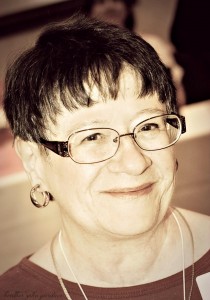 9. While I don’t make a pile of money, I have a steady monthly income that pays my business expenses, usually with money left over.
9. While I don’t make a pile of money, I have a steady monthly income that pays my business expenses, usually with money left over.
10. Not yet, but the time may come when I do support myself with that income.
13. Oddly enough, this so-called stigma has lessened among readers to the point where it has disappeared. The only remaining bastion of stigma is among diehard traditionally published authors, many of whom hold fast to their belief that only if one has been accepted for publication can the work possibly be any good. That has never been the case, and remains to not be the case. Readers are the fortunate ones, because the discerning buyer can reap a hundred-fold of good books now without depending upon any particular publishing house to provide good books. Yes, there are dismal self-published books out there, but anyone reading the description of the such a book can winnow the wheat from the chaff. Incidently, reading a dismal traditionally published book is what impelled me into writing commercially in the first place, saying to myself, “I can write better than that!”
My answer is, Become accessible on the Internet; choose one to three social media venues that don’t make you exhausted to keep up with; show yourself to be a person; post on your chosen venues with some kind of regularity, even if it’s only once a month; and for heaven’s sake, do not only put out constant posts about your works. Change it up! Tweet forward someone else’s post (it’s called retweeting), blog about a life occurrence instead of only crowing about a review, bring your readers along on the journey of writing your work. Be real!
3. Scott Blasingame
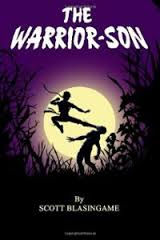 9. Let’s talk money. How much more profitable has self-publishing been for you than traditional publishing? If you’ve never been traditionally published, have you found self-publishing to be worthwhile? Please give examples. Time will tell. I’ve only got the one book out at the moment but am looking to follow it with 2 others in the next few months.
9. Let’s talk money. How much more profitable has self-publishing been for you than traditional publishing? If you’ve never been traditionally published, have you found self-publishing to be worthwhile? Please give examples. Time will tell. I’ve only got the one book out at the moment but am looking to follow it with 2 others in the next few months.
10. Do you support your family with your self-published earnings? Not yet.
11. What has been the most difficult part of self-publishing for you? I am not a computer guy and didn’t know anything about formatting and such. Self-publishing through Amazon and their subsidiary, Creatspace, was a big learning curve. There was lots of trial and error involved. But it’s free. You just have to have your work meet their requirements.
12. What has been the most exciting or rewarding part of self-publishing for you? Actually holding a printed copy in my hands certainly ranks. My 8 year old daughter telling everyone her dad is an “arther”. Taking part in a local author expo and the amount of people who came to my table out of interest in comparison to the writers set up around me (which made me feel a little self-conscious and embarrassed).
13. There has been a stigma on self-published books making them seem of a lesser value than those traditionally published. Why do you believe this is so? With the advent of ebooks and the saturation of easy-to-self-publish books, do you find this still to be true? I think the reason may be because of the perception that if someone (a publishing house) isn’t willing to take the chance on a writer or their book to mass produce and market it, then the writer/book mustn’t be all that good. I think we can all admit that there is a certain amount of gravitas and credence that comes to an author when they have the backing of a recognized publisher. With the advent of self-publication, the market it easily flooded by anyone who wants to try their hand at writing (something of which I’m guilty). The challenge is then to discover if your work stands out above that of your peers in self-publishing so that readers are willing to take a chance on reading it. That’s where self-marketing comes in. Then it’s a matter of how positive or negative the feedback is as well as how much feedback your work may even garner.
Amazon link: http://www.amazon.com/dp/B008XNBI1Q
Createspace link: https://www.createspace.com/3674446
4. John Hartnett
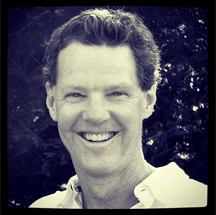 9. Let’s talk money. How much more profitable has self-publishing been for you than traditional publishing? If you’ve never been traditionally published, have you found self-publishing to be worthwhile? Please give examples.
9. Let’s talk money. How much more profitable has self-publishing been for you than traditional publishing? If you’ve never been traditionally published, have you found self-publishing to be worthwhile? Please give examples.
My first traditionally published book was a work for hire since I was an employee of a publishing company at that time. I do think the margins are higher for a self-published author but the real question is can an independent sell more units than a traditional publisher?
10. Do you support your family with your self-published earnings?
Yes, but it is not the sole source of income. If it were, we would have to really clarify what you mean by the word “support”. 🙂
11. What has been the most difficult part of self-publishing for you?
The marketing and self promotion. The writing is the easy part.
12. What has been the most exciting or rewarding part of self-publishing for you?
Completing the work -actually producing a print ready book and receiving feedback from the market is highly rewarding for me. I have more than 60 – 4 and 5 star reviews on Amazon, in many cases that’s more than traditionally published books have and that’s very gratifying. I know there is a market for my work and that my book has impacted people in a positive way and by that I mean making them laugh.
13. There has been a stigma on self-published books making them seem of a lesser value than those traditionally published. Why do you believe this is so? With the advent of ebooks and the saturation of easy-to-self-publish books, do you find this still to be true?
I believe the stigma exists for several reasons. One, because self published authors are bucking the system and in some cases creating more complexity in the market for traditional publishers. Two, there is a greater chance that books are not being formally and professionally vetted, edited, and packaged increasing the risk that a self published book is not worth the paper or the 1s and 0s it’s “printed on”. 🙂 Three, there is a lot of talk that for self published authors to grow an audience and generate sales against traditionally published books, they must sell at vastly discounted levels or in some cases, as with Amazon’s KDP program, offer their books for free for a limited time (usually a day or two) to build an audience and generate incremental sales — usually a small faction to the much greater number of total free downloads of e-books. When I see books that sell for $.99, I do wonder why and how that price point was determined.
I did use the Amazon KDP program which requires exclusivity with regard to distribution and for a two day free download promotion, more than 2,700 Kindle versions of my book were downloaded. I did not sell anything near that number in the days that followed the promotion and I am loathe to give my books away at such a level again.
Amazon (print and e-book)http://www.amazon.com/The-Barbers-Conundrum-Other-Stories/dp/0615741150
Barnes and Noble: http://www.barnesandnoble.com/s/the-barber-s-conundrum?keyword=the+barber%27s+conundrum&store=allproducts
iTunes: https://itunes.apple.com/us/book/barbers-conundrum-other-stories/id586680872?mt=11
Smashwords: https://www.smashwords.com/books/view/262661
Diesel :http://www.diesel-ebooks.com/item/SW00000262661/Hartnett-John-The-Barber-s-Conundrum-and-Other-Stories-Observations-on-Life-From-the-Cheap-Seats/1.html
Kobo: http://www.kobobooks.com/search/search.html?q=the+barber%27s+conundrum+and+other+stories
5. Jaleta Clegg
 9. Let’s talk money. How much more profitable has self-publishing been for you than traditional publishing? If you’ve never been traditionally published, have you found self-publishing to be worthwhile? Please give examples.
9. Let’s talk money. How much more profitable has self-publishing been for you than traditional publishing? If you’ve never been traditionally published, have you found self-publishing to be worthwhile? Please give examples.
I haven’t made more than pizza money yet, either through my publishers or through self-publishing. With self-publishing, I can keep the books in print indefinitely, though, which gives me time to build an audience.
10. Do you support your family with your self-published earnings?See the answer above. I make a little, almost enough to support my writing habit. But it has potential to make more.
11. What has been the most difficult part of self-publishing for you?Figuring out where Word and Pages hid all the controls for the auto-formatting so I can turn it off. Seriously. Getting the formatting right has been the biggest challenge. Even with years of experience doing page layout and design, the new systems are so frustrating sometimes. KDP wants the files formatted one way, Smashwords wants it another, and for print? I finally got frustrated enough I went back to InDesign and did a pdf file. It takes me a couple of weeks to get all the formatting done and tweaked.
12. What has been the most exciting or rewarding part of self-publishing for you?Publishing on my schedule. I don’t have six other books in line in front of mine. I can publish them as fast as I can work my way through the final edits and formatting. I have complete control over the look, too. If I hate the cover, I have no one to blame but myself.
13. There has been a stigma on self-published books making them seem of a lesser value than those traditionally published. Why do you believe this is so? With the advent of ebooks and the saturation of easy-to-self-publish books, do you find this still to be true?The traditional publishers have frowned on self-pubbed books for decades. If you self-published, it meant you weren’t good enough to land a “real” publisher. In reality, a lot of times it meant your book was market niche enough no publisher wanted to touch it. If it didn’t have the potential to make thousands of sales, it wasn’t worth their time and effort. With Print-On-Demand technology and ebooks, that is no longer the case, but the publishers are slow to change.
One of the reasons self-published books have such a bad reputation is that the people writing them refused to invest in editing services or cover design. It shows. But more authors are treating self-publishing as a business. They put in the time and effort to produce quality work. If you asked random readers what publisher produced the last book they read, most of them will give you a blank stare. The readers are the real gatekeepers in this business, not the publishers and not the authors. Readers will read what they enjoy, regardless of how it got published.
http://www.jaletac.com and her science fiction adventure at http://www.altairanempire.com
 9. Let’s talk money. How much more profitable has self-publishing been for you than traditional publishing? If you’ve never been traditionally published, have you found self-publishing to be worthwhile? Please give examples.
9. Let’s talk money. How much more profitable has self-publishing been for you than traditional publishing? If you’ve never been traditionally published, have you found self-publishing to be worthwhile? Please give examples.
For the three years of being self-published I have not made tons of money. I have had to revise several books because of editing. I advise self-published authors to find an editor to get it right the first time, otherwise sales will not happen until you PROVE yourself.
10. Do you support your family with your self-published earnings?
No, not yet but I know it WILL happen.
11. What has been the most difficult part of self-publishing for you?
Editing and not knowing what to do. I just happened to find the best authors in the self-publishing industry to give me tips.
12. What has been the most exciting or rewarding part of self-publishing for you?
I love doing it all, I love talking to others about my books and sharing for others.
13. There has been a stigma on self-published books making them seem of a lesser value than those traditionally published. Why do you believe this is so?
People are judging them lesser value because they do not believe we know what we are doing. But, research, lots of hours on working on our books, and marketing takes more than 24 hours a day. With the advent of e-books and the saturation of easy-to-self-publish books, do you find this still to be true? Yes I believe so.
14. What question have I not asked about self-publishing that you would like to pose and respond to?
I have fun learning everyday about self-publishing. Can I do it better, yes everyday can be better.
http://www.amazon.com/Rhonda-Patton/e/B008QX4XO2.
7. CJ Glassberg
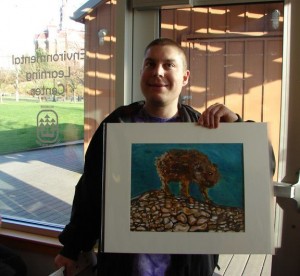 9. Let’s talk money. How much more profitable has self-publishing been for you than traditional publishing? If you’ve never been traditionally published, have you found self-publishing to be worthwhile? Please give examples.
9. Let’s talk money. How much more profitable has self-publishing been for you than traditional publishing? If you’ve never been traditionally published, have you found self-publishing to be worthwhile? Please give examples.
Tae Kwon Do for Kids and Adults: Barnes and Noble http://www.barnesandnoble.com/w/tae-kwon-do-for-kids-and-adults-c-j-glassberg/1100196684?ean=9781450529396
Spunky the Cat – A pillar: Barnes and Noble http://www.barnesandnoble.com/w/spunky-the-cat-a-pillar-c-j-glassberg/1111176676?ean=9781461078265
Katz: Amazon http://www.amazon.com/Katz-C-J-Glassberg/dp/1491230401/ref=tmm_pap_title_0?ie=UTF8&qid=1377843449&sr=1-3
Katz: Barnes and Noble http://www.barnesandnoble.com/w/katz-c-j-glassberg/1116308067?ean=9781491230404
8. Joseph Puente, Puente Media/Utah Filmmakers
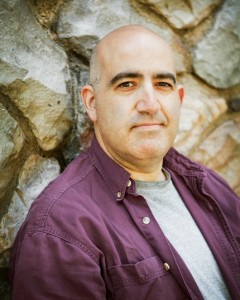 9. Do you support your family with your self-published earnings?
9. Do you support your family with your self-published earnings?
Nope
10. What has been the most difficult part of self-publishing for you?
Swallowing my pride and really listening to my editors (i.e. close friends who’ve read my work and offered suggestions and critique).
11. What has been the most exciting or rewarding part of self-publishing for you?
Just being about to say that I’m a published author. 🙂
12. There has been a stigma on self-published books making them seem of a lesser value than those traditionally published. Why do you believe this is so? With the advent of ebooks and the saturation of easy-to-self-publish books, do you find this still to be true?
There are always going to be people who can pay to publish their first draft. ebook publishing has made this even easier but I do believe that the cream rises to the top.
9. Michaelbrent Collings
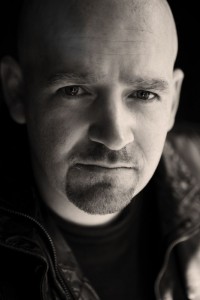 9. Let’s talk money. How much more profitable has self-publishing been for you than traditional publishing? If you’ve never been traditionally published, have you found self-publishing to be worthwhile? Please give examples.
9. Let’s talk money. How much more profitable has self-publishing been for you than traditional publishing? If you’ve never been traditionally published, have you found self-publishing to be worthwhile? Please give examples.
I make some money on olde-tyme print books through a publisher who is not me. I make a LOT more on my epub books that I publish myself. I won’t say how much, but again, all my books are bestsellers, I’ve written bestselling horror, thriller, YA, and children’s books, and I make enough to take care of a family.
10. Do you support your family with your self-published earnings?
See above.
11. What has been the most difficult part of self-publishing for you?
Turning down traditional publishers who either a) can’t afford to publish me because I make more with my own endeavors or b) won’t provide me any more in the way of market saturation than I can achieve on my own.
12. What has been the most exciting or rewarding part of self-publishing for you?
Writing stories that people like enough to buy and tell their friends about. What the heck is THAT about? <grin>
13. There has been a stigma on self-published books making them seem of a lesser value than those traditionally published. Why do you believe this is so? With the advent of ebooks and the saturation of easy-to-self-publish books, do you find this still to be true?
I think this is the case because a lot of self-pub books stink. And before anyone writes me a nasty note that starts, “Oh, yeah, but…!” let me point out that I AM A SELF-PUB GUY! So obviously I don’t think ALL of them stink. But again, a lot of people think they have a story to tell (they do), then find out that Kindle makes it possible for anyone to publish (it does), and thinks that they should put their story out right away (they SHOULDN’T). There’s a lot to be said for taking the time to learning how to do something right. I’ve met a lot of self-pub writers, and most of them are terrible. Most of them also treat writing like breathing: something they should just know how to do inherently.
On the other hand, the self-pub writers – and traditionally published ones – who have studied their craft, spent years honing it, and written a million words of dreck before really diving into their first “good” story can be truly great. The difference is that with traditional publishing there is a line of folks whose sole purpose is to keep the junk out of the bookstores, whose only reason for drawing a salary is to say, “No, that’s not good enough.” Do they fail sometimes? A lot of the time? Sure. But there’s ZERO quality control with self-pub. The only quality control are the authors themselves. And not a lot of people have the self-control or the self-esteem necessary to say, “Hey, I’m not ready yet. I’ll wait and learn and practice and then stun people in a year or five years when I’m ready.”
And due to human nature, I suspect this will always be a part of, and a “problem with,” self-pub.
14. What question have I not asked about self-publishing that you would like to pose and respond to?
Q: Why don’t even MORE people by your books, Michaelbrent?
A: Beats me. I’m open to newcomers. Ha!
http://www.michaelbrentcollings.com.
10. Kurt Kammeyer
 9. Let’s talk money. How much more profitable has self-publishing been for you than traditional publishing? If you’ve never been traditionally published, have you found self-publishing to be worthwhile? Please give examples.
9. Let’s talk money. How much more profitable has self-publishing been for you than traditional publishing? If you’ve never been traditionally published, have you found self-publishing to be worthwhile? Please give examples.
Those original hand-published hymnbooks cost me $12.00 each to print, and sold for $20.00 When you factor in shipping costs, I was making about $5.00 per book. With e-books, it’s almost all profit.
10. Do you support your family with your self-published earnings? No
11. What has been the most difficult part of self-publishing for you?
Finding an audience; marketing in general
12. What has been the most exciting or rewarding part of self-publishing for you?Meeting other authors with similar interests
13. There has been a stigma on self-published books making them seem of a lesser value than those traditionally published. Why do you believe this is so? With the advent of ebooks and the saturation of easy-to-self-publish books, do you find this still to be true?Writing and publishing a book used to be an expensive, time-consuming endeavor, which only accomplished writers attempted for the most part. As a result, most of the books that made it to print were of reasonably good quality or better. Today, anyone with a computer can self-publish, whether or not they know how to stick a noun and a verb together. Much of what you find self-published on the Internet is complete trash. The same phenomenon has taken place in the music industry: It used to cost money to hire a music studio, make records, etc. Now, any idiot can post to youTube.
14. What question have I not asked about self-publishing that you would like to pose and respond to?How do you go about finding a good book agent?
The President Elect book 1 http://www.smashwords.com/books/view/69820
The President Elect book 2 http://www.smashwords.com/books/view/70074
The President Elect book 3 http://www.smashwords.com/books/view/70076
The Clan of Stone http://www.smashwords.com/books/view/63699
The Defender of God http://www.smashwords.com/books/view/81641
The Empress of Edom http://www.smashwords.com/books/view/104122
By Ailad’s Bootstraps http://www.smashwords.com/books/view/119608
Bath-time Anomalies http://www.smashwords.com/books/view/178918
The Last Stradivari http://www.smashwords.com/books/view/207872
The Rejuvenated http://www.smashwords.com/books/view/263701
A Collection of Sacred Hymns http://www.smashwords.com/books/view/323072
As Lambs to His Fold (written by his mother, Virginia Maughan Kammeyer) http://www.smashwords.com/books/view/287163
11. George Snyder ~ Award Winning Crime Novelist
 9. What is your best tip for marketing self-published books?
9. What is your best tip for marketing self-published books?
Here is where everybody will shout about editing, the cover, format. But kids, what you need first is a damned good story worth reading. If the story is good enough, it’ll sell if it’s written in black crayon on a paper bag. Most stories aren’t that good.
10. Let’s talk money. How much more profitable has self-publishing been for you than traditional publishing? If you’ve never been traditionally published, have you found self-publishing to be worthwhile? Please give examples.
I do have a financial goal. I have to be realistic. I write hardboiled crime novels from a man’s POV, a genre agents tell me are a tough sell. Facts reveal the hard truth. 80% of all readers are women. The vast majority of these women read books in the sub-genres of Romance. That’s the lay of the landscape. More fact. 45% of college graduate men never read another book after graduation. For families that jumps to 80% period. So, I’m drawing dead from the get-go. I’m aiming at a 20% market and almost half the educated among them don t read. Not many left. Couple that with I’m a low-life blue collar writer. You won’t find many multi-syllable words in my books. So burdened with that there’s no reason for me to make money. I find little or no difference between traditional and Independent sales because nobody is going to push my books but me. The only saving grace I have for myself is the situation improves with each new book. I want to equal my retirement in royalties. I’m not there yet but I’m pogo jumping to it. Writers have to face it, not many are going to bang their little drum. They have to do it themselves; maybe it’ll work, maybe not. Just keep cranking them out.
11. Do you support your family with your self-published earnings?
My family is me, living on a small sail boat. Low overhead. I live on retirement and my royalties. If my royalties equal retirement, I’ll take a backpack trip across Europe.
12. What has been the most difficult part of self-publishing for you?
Those nuisance formats. I know people will do that for a price but I have to get it ready for even that. For a guy who considers the computer a bored-and-stroked, hopped-up word processor, it’s tough.
13. What has been the most exciting or rewarding part of self-publishing for you?
Anytime I get a fat royalty check. Miller Time. Winning that award was keen too.
14. There has been a stigma on self-published books making them seem of a lesser value than those traditionally published. Why do you believe this is so?
The stigma is well-earned. Yes there were misspelled, badly structured books but I don’t think that in itself is a turn-off. As a reader I can forgive that stuff. Bad writing is the reason for loss of value. Bad writing coupled with a bad story. Only the writer and maybe a few friends think it’s terrific. But self-published books didn’t hold an exclusive on that. I’ve read some horrible best sellers. One of my most treasured reference books I own is a little 50-page book that has no-color no publisher, no SSN number, no copy write and no photos, with an author named Fred Jones. It looks like something he put together in his garage. The information in it has me coming back again and again. I paid five bucks for it almost ten years ago. I love it. With the advent of eBooks and the saturation of easy-to-self-publish books, do you find this still to be true?No. Apparently writers are richer these days; they can afford expensive editing and fancy covers. But what’s happening now is genre constipation. The market is getting so backed up the reader is looking for release. We can’t all sell a thousand books a month, or become millionaires. One area the Facebook-Twitter-Google sites don’t quite hit—when it comes to those marketing tips—we’re not connecting with the reader, we’re connecting writer to writer. Sure writers are readers but it’s a different kind of reading. Instead of using marketing maybe we should seek a way to connect direct, writer to reader. I think that is coming.
15. What question have I not asked about self-publishing that you would like to pose and respond to?
Constantly work to make the process easier, simpler.
freelancer66@earthlink.net
Facebook-Goodreads-Smashwords-Google
12. Shirley Bahlmann
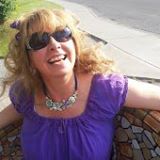 9. Let’s talk money. How much more profitable has self-publishing been for you than traditional publishing?
9. Let’s talk money. How much more profitable has self-publishing been for you than traditional publishing?
Less profitable
If you’ve never been traditionally published, have you found self-publishing to be worthwhile? Please give examples.
I still get occasional royalty checks from my traditionally published books. I rarely, if ever, sell any of my self-published books any more.
10. Do you support your family with your self-published earnings?
No
11. What has been the most difficult part of self-publishing for you?
Social media marketing. There seems to be so much of it that I sometimes feel buried. I barely have time to write, so social media marketing is overwhelming to me.
12. What has been the most exciting or rewarding part of self-publishing for you?
Creating the book. Local sales at the first release of the self published book. Having a book finished with a story that I feel is worth telling and reading.
13. There has been a stigma on self-published books making them seem of a lesser value than those traditionally published. Why do you believe this is so?
I’ve read some pretty awful self-published books. There is no gatekeeper for them, as there is for books that go through a publisher. With the advent of ebooks and the saturation of easy-to-self-publish books, do you find this still to be true? I can’t speak for anyone else, but I still feel wary of self-published books unless I’m already familiar with the author’s work. It helps to go on Amazon and be able to take a look inside just about any book.
14. What question have I not asked about self-publishing that you would like to pose and respond to?
I can’t think of any. You’re pretty thorough. I actually spent over a year debating with myself about pushing forward with more self publishing than traditional, but after speaking with Jeff Savage more than once, I decided to pursue literary representation rather than taking on self publishing exclusively. Doing it yourself takes a more energy and time than I feel I have right now.
http://shirleybahlmann.weebly.com/books.html, http://www.amazon.com/s/ref=nb_sb_noss_1?url=search-alias%3Daps&field-keywords=shirley+bahlmann
Website: http://shirleybahlmann.weebly.com/
Facebook: https://www.facebook.com/ShirleyBahlmannAuthor
13. Mike Thies
9. Let’s talk money. How much more profitable has self-publishing been for you than traditional publishing? If you’ve never been traditionally published, have you found self-publishing to be worthwhile? Please give examples.
I’m not sure. But I know a scary statistic is that a self-published book costs around $10,000 – $20,000 through and through for all the things you need in order to get published. Costs include (marketing, editing, book buying, website building, etc.).
10. Do you support your family with your self-published earnings?
No.
11. What has been the most difficult part of self-publishing for you?
Finding the time for it all when I still need to pull a full-time job too.
12. What has been the most exciting or rewarding part of self-publishing for you?
The marketing aspect. The support you see from your close friends and families. People from your school saying they can’t wait to buy your book when it comes out. Very very heartening comments all around.
13. There has been a stigma on self-published books making them seem of a lesser value than those traditionally published. Why do you believe this is so? With the advent of ebooks and the saturation of easy-to-self-publish books, do you find this still to be true?
It definitely can be. Here is what is causing this stigma—subsidiary publishers. Why do they even exist? As long as self-publishers know that they NEED AN EDITOR, they NEED A GRAPHIC DESIGNER, and that they can’t do everything themselves, they will put out a good-quality product. Many people think because of the word “self-published” means they did everything themselves. Not true. I had two different editors. One graphic designer. And plenty of help with marketing friends.
www.facebook.com/guardianofthecore
14. Greg Lovvorn
 9. Let’s talk money. How much more profitable has self-publishing been for you than traditional publishing? If you’ve never been traditionally published, have you found self-publishing to be worthwhile? Please give examples.
9. Let’s talk money. How much more profitable has self-publishing been for you than traditional publishing? If you’ve never been traditionally published, have you found self-publishing to be worthwhile? Please give examples.
How profitable self-publishing is depends on you. How much time, effort or cash you are willing to invest in building an audience. There are mountains of books published every day. You can’t just put your book out and wait for people to find it. You have to go to your audience and scream here I am.You can do this on your own or pay firms to do it for you but you have to do something to draw attention to your work.
Time and patients, neither of which I have enough of. The tools that are available for self-publishing today make the publishing part easy. There are ready made templates that you just basically copy and paste your books into and submit. It is a little more involved than that but not much.
After just two experiences self-publishing I can take a finished book in word document form, reformat it and have it submitted for both paperback and electronic (Kindle, Nook, etc.) distribution in just a few hours.
Having the time to research the book, write the book, and promote the book that is what is difficult; that and waiting to see all the work bear fruit.
Hearing from people who have benefited from my writing has got to of been the greatest reward. I have received several e-mails from people thanking me for my work or telling me how I gave them the courage to try something they never thought they could do.
When I reread his first letter to me it reminds me of why I wrote that book.
13. There has been a stigma on self-published books making them seem of a lesser value than those traditionally published. Why do you believe this is so? With the advent of ebooks and the saturation of easy-to-self-publish books, do you find this still to be true?
First question, why the stigma? If you look at what a book goes through before it makes it to market with traditional publishers. You can be fairly assured you are getting a well put together product. They go through content edits, copy edits, proofing, and typeset edits sometimes several times before the first edition is printed. Most self-published books aren’t reviewed quite as thoroughly.
The other factor that I think contributes to this stigma is the number of books that are coming out that have nothing original but are just rehashed material thrown together in order to try and sell you something.
I buy books to learn or enjoy and to be honest it makes me angry when I invest time and money in a book and all I get in return is a multi-chapter sales pitch for a product, service, or some type of program. I feel the people using self-publishing this way are cheating the readers and giving all of us a bad name.
Second question, do I think it is still true? Again, yes and no, there are so many quality writers out there that are self-publishing and so many people are now using electronic readers that a lot of the stigma has fallen away especially in the fiction genres. That is a great thing. In the nonfiction arena, where I operate the problem I was talking about above has left us with some ground still to make up.
No, I do believe that it has turned the financial tables slightly in favor of writers though. Once upon a time (had to say it), the big boys wrote the rules and you either played their game or didn’t play.
Things aren’t so cut and dried now. Many authors are finding success self-publishing and then using that to get attention from publishers. By the same token some authors who have made a name through traditional channels have taken that name into self-publishing because of the greater control it affords them over their work and the greater monetary benefits it can bring.
The field is getting more level and I feel there will always be room for everyone to play.
15. D. Ogden Huff
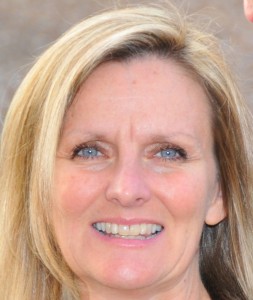 9. Let’s talk money. How much more profitable has self-publishing been for you than traditional publishing? If you’ve never been traditionally published, have you found self-publishing to be worthwhile? Please give examples.
9. Let’s talk money. How much more profitable has self-publishing been for you than traditional publishing? If you’ve never been traditionally published, have you found self-publishing to be worthwhile? Please give examples.
I didn’t self-publish for the money, so the few hundred dollars I’ve earned when someone has wandered over to one of my books is just icing on the cake. I never could have traditionally published during the last couple of years—I simply did not have the time. As a result, I wouldn’t have made any money at all. But now I’ve profited from my writing. How cool is that?
10. Do you support your family with your self-published earnings?
Heck, no. But I go on an occasional date with my husband with my self-published earnings. That’s cool too.
11. What has been the most difficult part of self-publishing for you?
Finding time for the work of marketing. Everything else is fun, not work.
12. What has been the most exciting or rewarding part of self-publishing for you?
I had no idea that self-publishing would be so much FUN. I’ve loved learning the process, seeing the results, getting feedback from readers. There’s nothing like reading my own words in a paperback novel. Friends actually believe I’m an author now.
13. There has been a stigma on self-published books making them seem of a lesser value than those traditionally published. Why do you believe this is so? With the advent of ebooks and the saturation of easy-to-self-publish books, do you find this still to be true?
Back when self-publishing meant dumping a bunch of money into printing your books, there was a well-earned stigma that the authors that would do that were either naïve or arrogant. But now that the quality of self-published books have gone up and the cost has gone down (to the point of being free) I think the table is turning. Traditionally published authors are looking at the high profit margins of self-published authors and getting a little jealous. In addition, it’s getting harder to tell the self-published book from a traditionally published book, and even more difficult with e-books. In the future, I think the stigma will be with unprofessionally edited books compared with professionally edited books. The successful self-published author will be one who is fanatical about the quality of his/her book.
14. What question have I not asked about self-publishing that you would like to pose and respond to?
Since you’re not self-publishing for the money, why do it?
1. To ensure my hard work isn’t wasted – What good does it accomplish having my novels sleeping in a folder on my computer?
2. To share with my friends and family – I want others to be able to read my novels now, not in three to five years.
3. To back up my documents – I don’t have to worry about losing my manuscripts if my computer crashes, my house burns down, or my two-year-old granddaughter helps me type.
4. To catch the wave (of self-publishing) – I didn’t want to be left watching others ride the wave to shore.
5. To catch my mistakes – Reading from a paperback book makes it easier to see my errors, my misspellings, my repeated words that somehow don’t appear on my computer screen. I swear they weren’t there before!
6. To get real feedback from someone other than family and friends – Strangers will tell you the truth. You learn a lot from the truth.
7. To avoid sending queries and getting rejection letters – Self-publishing is my way of sending agents, editors, and publishing companies a rejection letter from ME. Feels good.
8. To learn tons – I have new mad editing skills, cover design skills, and website skills. I’m a self-publishing ninja.
9. To have FUN – I have giggled with glee repeatedly as I’ve self-published my novels. Writing is more fun when you can see the result.
10. To claim bragging rights – I’m a real author and have the books to prove it. Boo-Yah.
16. Saoirse O’Mara
 9. Let’s talk money. How much more profitable has self-publishing been for you than traditional publishing? If you’ve never been traditionally published, have you found self-publishing to be worthwhile? Please give examples.
9. Let’s talk money. How much more profitable has self-publishing been for you than traditional publishing? If you’ve never been traditionally published, have you found self-publishing to be worthwhile? Please give examples.
It’s definitely been worth my time and money. I still haven’t made back the money I invested but I didn’t expect to make it back so soon anyway. It’s a long-term investment, and it’s what I want to do. I’m a writer not by profession but by passion.
10. Do you support your family with your self-published earnings?Not yet (see above) but that’s the long-term plan.
11. What has been the most difficult part of self-publishing for you?Patience. And I’m still learning the marketing ropes (and doubt I’ll ever be done learning new strategies and improving mine).
12. What has been the most exciting or rewarding part of self-publishing for you?Direct feedback from readers. Seeing children laugh and smile, hearing from parents that their children loved my book and know it by heart, getting good reviews and seeing my books recommended by my readers. It’s even better than that feeling of holding my book in my hands for the first time.
13. There has been a stigma on self-published books making them seem of a lesser value than those traditionally published. Why do you believe this is so? With the advent of ebooks and the saturation of easy-to-self-publish books, do you find this still to be true?I think the stigma came (and still comes) from the many books out there that are published without the professional attitude necessary to make it more than a hobby. Books rife with mistakes, amateurish covers, poor storytelling… Do I need to go on? I’m sure every one of us has read a book with any one (or a combination) of these things before.
I do believe that the stigma lessens, though. One reason is definitely the increased number of professional self-publishers who enlist the help of editors, beta readers, proofreaders, cover designers, formatters…. Another reason may be the decreasing quality seen in some of the traditionally published books. Editing and proofreading is expensive, and even the big publishing houses are trying to save money there (at least that’s the impression I get).
14. What question have I not asked about self-publishing that you would like to pose and respond to?
Would I make the same decision to self-publish again? You bet I would!
Theresa Berg http://www.amazon.com/Theresa-Berg/e/B0088MWM58/ref=sr_tc_2_0?qid=1377544573&sr=1-2-ent
17. Cindy Christiansen
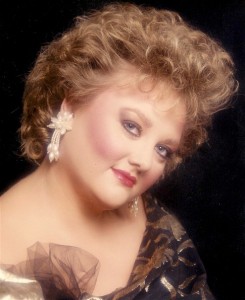 9. Let’s talk money. How much more profitable has self-publishing been for you than traditional publishing? If you’ve never been traditionally published, have you found self-publishing to be worthwhile? Please give examples.
9. Let’s talk money. How much more profitable has self-publishing been for you than traditional publishing? If you’ve never been traditionally published, have you found self-publishing to be worthwhile? Please give examples.
I can’t answer that question. For me it’s comparing apples and oranges. I’ve only self-pubbed three novellas in ebook form, one of them listed for free. I haven’t paid to purchase ISBN numbers, or for a cover artist, editor, or printing as an indie author. My publisher pays for these things on my full-length books. However, I will say that Kindle Direct Publishing takes the same percent as my publisher. I don’t think any of us are getting rich out there. J
10. Do you support your family with your self-published earnings?
No, I don’t. I don’t have enough books self-pubbed to know if that will happen. Most authors will tell you they do it for the love of writing.
11. What has been the most difficult part of self-publishing for you?
Promoting is always the hardest thing to do—self-pubbed or not. On self-publishing alone, I guess it would be getting the formatting correct and making sure the cover will be appealing to readers. There’s a lot riding on that.
12. What has been the most exciting or rewarding part of self-publishing for you?
Having creativity over the whole process and creating the cover. (I’m a wildlife artist too.)
13. There has been a stigma on self-published books making them seem of a lesser value than those traditionally published. Why do you believe this is so? With the advent of ebooks and the saturation of easy-to-self-publish books, do you find this still to be true?
Have you read some of it? (lol) Honestly, I’m disappointed in the quality of what’s coming out of the bigger houses too. With the technology we have today, you would think there would be fewer errors in books instead of more. I also think traditional publishers have gotten lax on the quality of writing they are putting out. Like most things, there’s good and bad in both worlds.
14. What is your view on free reads?
I’ve published a prequel novella to my series: A Merchant Street Mystery being published by Sweet Cravings. The prequel, Worth the Wait, is listed for free. I’m hoping to gain interest in the series. Author Bob Mayer is publishing short reads based on his sci-fi books and putting them on Wattpad for free. Many authors are doing this sort of thing to gain readers and compete in the market. However, with the number of free reads by self-published authors, I believe readers have adopted the attitude of “download it for free and if it’s not any good just download another.” This is hurting authors who are writing to make a living.
Website: http://www.dragonflyromance.com
Facebook: http://www.facebook.com/DragonflyRomance
Facebook: http://www.facebook.com/AuthorDragonfly
Twitter: https://twitter.com/CindyDragonfly
Google+: http://bit.ly/14TuIh6
Pinterest: http://pinterest.com/cindydragonfly/
Youtube home: bit.ly/Wtw4b8
cindy@dragonflyromance.com
Youtube videos: http://www.youtube.com/user/CADragonfly/videos
Sweet Cravings Publishing: http://bit.ly/WdkOU0
Amazon: http://amzn.to/WviRlv
Barnes and Noble: http://bit.ly/VmNLee
All Romance ebooks: http://bit.ly/1186k6h
Website: http://bit.ly/r8EEkq
Smashwords: http://bit.ly/19kmbY9
18. Jerry Hatchett
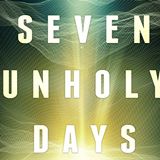 9. Let’s talk money. How much more profitable has self-publishing been for you than traditional publishing? If you’ve never been traditionally published, have you found self-publishing to be worthwhile? Please give examples.
9. Let’s talk money. How much more profitable has self-publishing been for you than traditional publishing? If you’ve never been traditionally published, have you found self-publishing to be worthwhile? Please give examples.
It’s definitely worthwhile for me. While I do not consider myself to be writing for money at this stage, the simple fact is that money comes from sales and sales are what define commercial success in publishing, just like in any other business. My primary goal is to entertain through quality storytelling, and I’m blessed to be able to say that’s now yielding significant cash as a pleasant secondary benefit.
10. Do you support your family with your self-published earnings?
No. My focus at this point is on writing great stories and building a fan base by entertaining readers.
11. What has been the most difficult part of self-publishing for you?
The most difficult aspect of self-publishing is exactly the same as with traditional publishing: being seen. In traditional publishing, it was and is difficult to have good work seen by the right people because it has always had to compete with the mountain of dreck known as the slush pile. The e-publishing revolution has simply moved a big chunk of the slush pile from the desks of traditional publishing, to pages on Amazon. Now good work has to compete with the mountain of dreck to be seen directly by readers.
12. What has been the most exciting or rewarding part of self-publishing for you?
My work is finally fulfilling its primary goal of entertaining readers, letting them visit new worlds and meet new characters that are my own creation. I find it immensely satisfying to read reviews and emails from readers that tell me I’m succeeding at this.
13. There has been a stigma on self-published books making them seem of a lesser value than those traditionally published. Why do you believe this is so? With the advent of ebooks and the saturation of easy-to-self-publish books, do you find this still to be true?
The stigma at this point is far, far less than I would have expected, and I think it will eventually disappear altogether as mechanisms develop to separate the wheat from the chaff.
14. What question have I not asked about self-publishing that you would like to pose and respond to?
I have nothing to add at this point. Your questions are among the most thorough and insightful I’ve seen on this topic. Nicely done!
Author Website: http://www.jerryhatchett.com
StoryFreak Blog: http://jerryhatchett.blogspot.com
Twitter: http://www.twitter.com/Chop0Matic
Pawnbroker Website: http://www.pawnbrokernovel.com
Public Email: newsletter@jerryhatchett.com
Newsletter Subscribe: Jerry Hatchett Author Newsletter
Pawnbroker on Amazon: http://amzn.to/10GTdgU
Seven Unholy Days on Amazon: http://amzn.to/10tDIVN
The Projectionist: Part 1 on Amazon: http://amzn.to/13gZrDe
19. Donna Fernstrom
 9. Let’s talk money. How much more profitable has self-publishing been for you than traditional publishing? If you’ve never been traditionally published, have you found self-publishing to be worthwhile? Please give examples.
9. Let’s talk money. How much more profitable has self-publishing been for you than traditional publishing? If you’ve never been traditionally published, have you found self-publishing to be worthwhile? Please give examples.
They only comprise a small part of my income at this time, but we appreciate every penny.
11. What has been the most difficult part of self-publishing for you?Marketing! It’s difficult to learn, time-consuming, and frustrating.
12. What has been the most exciting or rewarding part of self-publishing for you?Seeing books that I have had available for years increase in sales and pay me while I sit back and do nothing at all. That seems shallow, but it is an epic feeling. Lol. I also find hearing from fans of my fiction work to be exciting – knowing that other people are actually enjoying what I’ve created feels great. Specifically about self-publishing… well, I like having control over my work. It says what I want it to say, and my editor is a collaborator in that process. I don’t have to please anyone other than myself to get the book out there, and then I can watch people enjoy what I’ve done.
13. There has been a stigma on self-published books making them seem of a lesser value than those traditionally published. Why do you believe this is so? With the advent of ebooks and the saturation of easy-to-self-publish books, do you find this still to be true?There has been, and part of that is due to the huge number of authors who want to basically publish their unedited high school-level scribblings, without putting in the necessary work to create a worthwhile product. However, that is beginning change. Authors are helping one another figure out the best strategies. Traditional publishing companies disparage self-published works whenever they can, which has kept that stigma going as well, but readers are beginning to stop listening to them. Quality control remains difficult… but that’s what reviews are for! Readers REALLY pay attention to those, when picking out a book, to determine whether it’s worth their time. I don’t think readers even NOTICE whether it’s self-published or Trad published, most of the time! Reviews are king.
14. What question have I not asked about self-publishing that you would like to pose and respond to?I think a good question would be, what pitfalls should prospective self-publishers watch out for? My answer to it is, watch out for people who make their living by taking money out of the pockets of authors. Some of them are honest, and want to see you succeed… many don’t care about your success at all, and will take every penny they can get, and leave you with little to nothing to show for it. It’s a dog-eat-dog world out there. Watch out for ‘Author Solutions’ and all of its shell companies and masks. They’re great at SEO, and they’re the first thing a lot of authors see when they look up self-publishing. If someone tells you that their way is the way you HAVE to go if you want to make any money, and it happens to be a way that involves paying them something… be wary! It’s hard to sell books, and there are many authors who have spent thousands, only to make a couple hundred total from their book as a result of it. Don’t spend more than you can afford to lose, and don’t spend more than you think your book can make! No matter what excuses high-priced editors might give you about pride and ‘quality products’, be PRACTICAL. There are professional editors who are GOOD who will charge you only a few hundred to edit your book. Find them! Pay attention to the warnings other self-published authors post. Don’t get taken!
http://www.donnafernstrom.com
http://www.amazon.com/Beginning-Psionics-Training-Manual-ebook/dp/B00AZNODS2
https://www.smashwords.com/books/view/349404
http://www.lulu.com/shop/donna-fernstrom/sorrows-pdf/ebook/product-21156643.html
http://www.writersout.com/node/9949 .
20. Lauren Ritz
 9. Let’s talk money. How much more profitable has self-publishing been for you than traditional publishing? If you’ve never been traditionally published, have you found self-publishing to be worthwhile? Please give examples.
9. Let’s talk money. How much more profitable has self-publishing been for you than traditional publishing? If you’ve never been traditionally published, have you found self-publishing to be worthwhile? Please give examples.
It’s a different focus. So far each of my books has paid for itself, but I see this as a slow-growing tree rather than an avalanche. I’ve planted the seed, I’ll continue writing and putting books out there. The more people see my name the more exposure I’ll get.
10. Do you support your family with your self-published earnings?No. That is my eventual goal.
11. What has been the most difficult part of self-publishing for you?Definitely marketing.
12. What has been the most exciting or rewarding part of self-publishing for you?Learning. Learning how to write, how to do cover art, how to build a website. One little thing at a time. Now I’m learning about marketing.
13. There has been a stigma on self-published books making them seem of a lesser value than those traditionally published. Why do you believe this is so? With the advent of ebooks and the saturation of easy-to-self-publish books, do you find this still to be true?In my opinion the stigma was a result of the stigma. Early in the process people didn’t want to be self-published. Just like any other “new” path, it was considered of lower status. So those who did self-publish were those who couldn’t go the traditional route and often the books were of poor quality. As it became more acceptable, higher quality books were introduced and there were more resources available on how to do it right.
The stigma is still there, but I equate it with the high-nosed snootishness of a sitcom actor snubbing a stage actor : ) or vice versa.
14. What question have I not asked about self-publishing that you would like to pose and respond to?If you have the budget for it, I strongly suggest that you hire cover art, editing, formatting, etc. However, do not assume that you cannot do these things yourself. You can, but it will take time, effort and a great deal of training to do it well. What you cannot do WELL should be given to someone else to do well for you.
Kindle: Without A Voice
Nook: Without A Voice
All other formats: Without A Voice
All other formats: Spirit
21. Marie Higgins
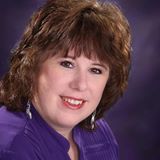 9. Let’s talk money. How much more profitable has self-publishing been for you than traditional publishing? If you’ve never been traditionally published, have you found self-publishing to be worthwhile? Please give examples.
9. Let’s talk money. How much more profitable has self-publishing been for you than traditional publishing? If you’ve never been traditionally published, have you found self-publishing to be worthwhile? Please give examples.
When I got my first royalty check from publisher and it was for two of my books and for a year’s worth of royalties, I was shocked how small the check was. Of course, I only received 12% off every paperback and 30% off every ebook. With self-publishing, I get 70% off my ebooks – and I can set the price of my print books, and my take-home is tons more than 12%. Anyway, when I got my first royalty check from publisher I divided it by 12 months to see how much exactly I made per month. Total was $88. I knew as long as I made $88 / month with my self-published books, than it was worth it for me to do this. The first month I made $26. Second month I made $75. Third month was over $100. And every month climbed from that point. That told me right there where my future was heading.
Yes and no. I work full time, so my income helps pay the bills. My husband has been unemployed since January 2013. By that time, I was almost bringing in enough royalties per month to make up for what his unemployment was bringing in. But keep in mind, some months aren’t as profitable as others. So in the long run, my earnings probably didn’t ‘support’ his loss of income. However…it certainly helped pay bills!
11. What has been the most difficult part of self-publishing for you?Finding time to write more books!! J
12. What has been the most exciting or rewarding part of self-publishing for you?The most rewarding and exciting thing for me is to see how many people have downloaded my story. I’m amazed! And when I have my stories free for a time, I’m stunned to see how many people have downloaded my free story. I kid you not…if I were to add up all the downloads people have gotten during my free days, I wouldn’t be exaggerating to say I’ve had over 100,000 readers!
13. There has been a stigma on self-published books making them seem of a lesser value than those traditionally published. Why do you believe this is so? With the advent of ebooks and the saturation of easy-to-self-publish books, do you find this still to be true?It’s probably because now that authors aren’t with publishing houses, they have to find others to help edit their stories. If the authors can’t afford a real editor, then they rely on their critique partners and beta readers. For some of us, it’s better to have a lot of eyes looking at our stories than one editor at a publishing company. Because even editors at big publishing companies overlook errors. I’ve seen tons in the books I’ve read over the years from the big publishers.
14. What question have I not asked about self-publishing that you would like to pose and respond to?I can’t think of any right now.
15. Please send a picture(s), short bio, purchase links, and website/blog addresses.I will attach my author pic, and here is my bio. I’ve already included my purchase links and website/blog on other questions.
Since Marie Higgins was a little girl playing Barbies with her sister, Stacey, she has loved the adventure of making up romantic stories. Marie was only eighteen years old when she wrote her first skit, which won an award for Funniest Skit. A little later in life, after she’d married and had children, Marie wrote Church roadshows that were judged as Funniest and Best Written. From there, she branched out to write full-length novels based on her dreams. (Yes, she says, her dreams really are that silly)
22. Heather Jensen
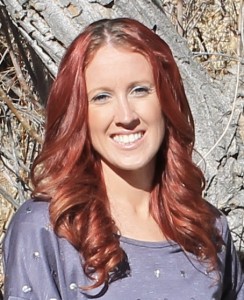 9. Let’s talk money. How much more profitable has self-publishing been for you than traditional publishing? If you’ve never been traditionally published, have you found self-publishing to be worthwhile? Please give examples. I’ve always said that I’m going to keep writing no matter what. It’s the best therapy in the world. As for money, as long as my books can pay for themselves as far as paying for covers to be designed, paying for editing, and a budget for marketing them, then I feel like I’m doing well enough. I’m not in it to get rich, but having the books support themselves financially feels amazing.
9. Let’s talk money. How much more profitable has self-publishing been for you than traditional publishing? If you’ve never been traditionally published, have you found self-publishing to be worthwhile? Please give examples. I’ve always said that I’m going to keep writing no matter what. It’s the best therapy in the world. As for money, as long as my books can pay for themselves as far as paying for covers to be designed, paying for editing, and a budget for marketing them, then I feel like I’m doing well enough. I’m not in it to get rich, but having the books support themselves financially feels amazing.
10. Do you support your family with your self-published earnings? No. I work part-time at a preschool and my husband has a full-time job.
11. What has been the most difficult part of self-publishing for you? Formatting e-book and print books. I have always said that formatting is so much harder than writing the actual book. E-book files are so finicky, and I have a love/hate relationship with headers and footers and Microsoft Word. Also, I spend a lot of time online trying to network and find readers. I try not to let that cut into my writing time, but it’s hard, and in this world any author, traditionally or self-published, is expected to market themselves and their brand. I was really surprised in the beginning at how much time it takes just to constantly search for and be in contact with book bloggers who might be willing to review your book and help spread the word.
12. What has been the most exciting or rewarding part of self-publishing for you? As I mentioned before, I love having creative control over every aspect of my work. I work closely with a cover designer to get the right image to represent my book. I get to decide what font the book is set in, and what size. The best part, though, is logging on to Amazon and finding a new review for one of my books and seeing that a reader really connected with my characters and their story. Any kind of positive feedback from a reader will put a smile on my face for a week.
13. There has been a stigma on self-published books making them seem of a lesser value than those traditionally published. Why do you believe this is so? With the advent of ebooks and the saturation of easy-to-self-publish books, do you find this still to be true? Not at all. I actually find that traditionally published books are often just priced more, but that price doesn’t necessarily mean that you’re getting a better book. There are so many amazing self-pub authors. I found myself at the bookstore the other day staring at the paranormal teen section, and I realized that I didn’t know half of the authors. That’s not like me, but he strangest part was that I was okay with it. The names floating around in my head are all self-published authors that I’ve read recently and admire. A good book is a good book, no matter how it gets in your hands.
14. What question have I not asked about self-publishing that you would like to pose and respond to? This is more of an observation, but I’m still up in the air about Amazon and their KDP select program, which requires exclusivity with Amazon for e-books. I’m giving it a try. I just had a very successful free day that garnered a lot of downloads for Blood And Guitars, but I hate the idea of being so exclusive with my books. It’s a hard spot for authors to be in, and I know the Select Funds aren’t what they were in the beginning. I wish I had more insight, but I think every author just has to do what’s right for them.
http://www.amazon.com/gp/product/B00529IDZS
http://www.amazon.com/Blood-Guitars-Heather-Jensen/dp/1463511884
http://www.amazon.com/Immortals-Melodies-Blood-Guitars-ebook/dp/B0086GMMAQ
Author Website www.heatherjensen.info
Facebook www.facebook.com/BloodAndGuitars
Twitter https://twitter.com/#!/theedgeofwords
Google+ https://plus.google.com/u/0/b/112920558824411082148/
http://www.youtube.com/playlist?list=PL6188671C464951F2&feature=plcp
http://www.goodreads.com/author/show/2870615.Heather_Jensen
23. Ia Uaro
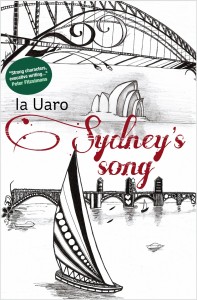 9. Let’s talk money. How much more profitable has self-publishing been for you than traditional publishing? If you’ve never been traditionally published, have you found self-publishing to be worthwhile? Please give examples.
9. Let’s talk money. How much more profitable has self-publishing been for you than traditional publishing? If you’ve never been traditionally published, have you found self-publishing to be worthwhile? Please give examples.
Not profitable as my income can only cover my costs. It should be better once you have written more than one book.
10. Do you support your family with your self-published earnings?No. See the answer to question #9.
11. What has been the most difficult part of self-publishing for you?This is the easiest question. Sadly, I have many answers:
§ Marketing. Even if you’re with a traditional publisher, you need to be marketing-savvy. However, traditional publishers can’t afford to risk their business finance investing in untried, newbie fiction authors. There is no easy way out: new authors must learn the rope of marketing.
§ Literary agents are few in numbers. They are already occupied with the work of established authors. You may have to pay an expert literary critic to assess your manuscript, to provide an in-depth rationale of your entire manuscript in every aspect. Implementing the suggestions will do your self-esteem wonders when, in the future, some vile reviewers look down upon your book. You know that no one will think badly of it—except the low people.
§ Advance technology has made self-publishing too easy. Over 10,000 new books are being self-published every week, making it extremely difficult for a new voice to be heard. I suggest: build your author brand as soon as you complete the first draft (while waiting for your beta readers).
§ The majority of self-published books debase literature in content and quality. This drives book businesses to shun self-published authors. I suggest: do not rush your manuscript. Give it your personal best and don’t murder your beta readers. It’s always great to receive criticism (the more hurtful, the more valuable) during the manuscript stage—instead of having your published book ripped apart by critics later.
§ Sharks infest every water that a self-published author must tread in. Eight-million-too-many authors are easy preys to thriving businesses that create wealth out of their victims’ desperate attempt at successful self-publishing. If you must pay some companies for a service, check the details of their responsibilities before signing any agreement.
§ The social media can be powerful tools. However, their nature and the time they consume have evil potential to bring you down. List your priorities and stick to it. Make sure your loved ones feel loved. (And your loved ones include your own person.)
12. What has been the most exciting or rewarding part of self-publishing for you?Self-publishing has been worthwhile because of its non-monetary profits. I’m not who I was a year ago. I have developed new skills and I have met wonderful people whose friendships are priceless.
Of course, like in any types of publishing, the best reward is when your fans praise you.
13. There has been a stigma on self-published books making them seem of a lesser value than those traditionally published. Why do you believe this is so? With the advent of ebooks and the saturation of easy-to-self-publish books, do you find this still to be true?See one answer for question #11 above. Apart from that, I am also a reviewer. Sad to say, it’s extremely rare that I can post my reviews of self-published work because I only post reviews that won’t hurt sales.
14. What question have I not asked about self-publishing that you would like to pose and respond to?Why self-publishing:
· Traditionally published is always easier, but don’t get disheartened because no traditional publisher will invest on an untried newbie. You are a unique child of this world, what you have to offer matters. You have every bit as much brightness to offer the world as the next person. Your writings will become some readers’ reason to smile. You are a gift to them.
· You have written a non mainstream. Traditional publishers want you to conform to the market demand.
· You have written a time-sensitive subject. Waiting will cause you to lose the sales momentum.
Ia Uaro’s website and shop, YouTube channel, and blog.
24. Amanda Holden
 9. Let’s talk money. How much more profitable has self-publishing been for you than traditional publishing? If you’ve never been traditionally published, have you found self-publishing to be worthwhile? Please give examples.I think it really depends on how good you are at selling yourself and your book. You can make a lot of money if you know how to market your work. It has been worth it in a way where I am finally a published author because I went out and did it myself.10. Do you support your family with your self-published earnings?Well, everything I make goes into the bank and isn’t touch unless it is needed. So I guess it is supporting me and my husband in some way. It’s always good to have some savings.
9. Let’s talk money. How much more profitable has self-publishing been for you than traditional publishing? If you’ve never been traditionally published, have you found self-publishing to be worthwhile? Please give examples.I think it really depends on how good you are at selling yourself and your book. You can make a lot of money if you know how to market your work. It has been worth it in a way where I am finally a published author because I went out and did it myself.10. Do you support your family with your self-published earnings?Well, everything I make goes into the bank and isn’t touch unless it is needed. So I guess it is supporting me and my husband in some way. It’s always good to have some savings.
11. What has been the most difficult part of self-publishing for you?
Getting my book out as well as formatting. Everything else was a breeze.
12. What has been the most exciting or rewarding part of self-publishing for you?
The most exciting part of self-publishing was waiting on my proof copy to come in the mail!
13. There has been a stigma on self-published books making them seem of a lesser value than those traditionally published. Why do you believe this is so? With the advent of ebooks and the saturation of easy-to-self-publish books, do you find this still to be true?
In some ways, yes. Sometimes people go into self-publishing, not knowing where to start. Something may be missed, or overlooked or their cover art is not as great. It really depends on how knowledgeable you are with the process. However, I do believe one can make high quality self-published books. Example: Children’s book author, Sheri Fink
14. What question have I not asked about self-publishing that you would like to pose and respond to?
N/A
Up-coming works:
Captain Sam Sails Across the SkyFacebook page: www.facebook.com/captainsamsailsacrossthesky
The Prodigal Princess:Facebook Page: www.facebook.com/theprodigalprincess
Author information:Amanda Holden
Email: amanda.holden671@gmail.com
Author Facebook: www.facebook.com/amandaroseholden
Website: www.amandarholden.webs.com
Facebook: www.facebook.com/AzyeasGifts
Book Trailer: https://www.youtube.com/watch?v=OkmwYHMAIbg
25. Merita King
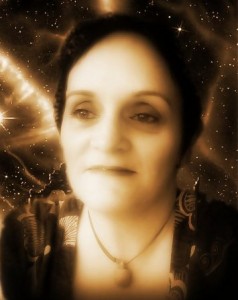 9. Let’s talk money. How much more profitable has self-publishing been for you than traditional publishing? If you’ve never been traditionally published, have you found self-publishing to be worthwhile? Please give examples.
9. Let’s talk money. How much more profitable has self-publishing been for you than traditional publishing? If you’ve never been traditionally published, have you found self-publishing to be worthwhile? Please give examples.
I’ve never been traditionally published so I can’t compare the two. What I can say is being an author is not profitable at all, at least for me. That’s not why I write though. I know it’s a cliche, but I write because I can’t not write. It would be nice to get rich from it, but even if I don’t, I will still write.
10. Do you support your family with your self-published earnings?
I don’t have a family and thank god for that. If I did, and tried to support them from writing, we’d all have starved to death ages ago. Really, writing is not a money making exercise, ever. If anyone is wanting to write a book to make money, don’t bother. You’re wasting your time. Go and get a job in a bar instead.
11. What has been the most difficult part of self-publishing for you?
Marketing is, by far, the hardest part of being an author. Even those who are traditionally published have to do their own marketing, so don’t think you can avoid it by getting a contract.
12. What has been the most exciting or rewarding part of self-publishing for you?
Oh that’s easy, getting my voice out there and seeing it out there. That is so cool I just cannot explain it. My words may not mean squat to anyone else, but to see my words in print, for sale inonline stores is pant wettingly cool.
13. There has been a stigma on self-published books making them seem of a lesser value than those traditionally published. Why do you believe this is so? With the advent of ebooks and the saturation of easy-to-self-publish books, do you find this still to be true?
I’m afraid I do, yes. The problem with self publishing is that anyone can do it. I know that’s the point right? But you see, very few people can actually write a story that you want to read, and write it well. Many books out there nowadays are little more than therapy writing for people recovering from some trauma, and whilst writing them may do the person a lot of good in their healing, they really aren’t of any interest to the world at large and shouldn’t really be out there at all. Likewise with those who have so little actual creativity that they resort to stealing plots/titles/characters from other books/movies/tv shows. Everyone hopes that the good stuff will find its way to the surface but actually, it often doesn’t. Much of the good stuff is buried beneath a ton of trash and no amount of spamming on facebook or twitter will get it noticed. There are too many books out there and too many of them are trash.
14. What question have I not asked about self-publishing that you would like to pose and respond to?
The question that I think will most help people new to self publishing is, “should you pay to self publish?” My answer is categorically no. The only money you need to spend is on cover art. All the rest you can do yourself. There are many companies out there offering to do it all for you, at vast cost to yourself of course, but don’t be drawn in by them and don’t part with your money. The technical aspects of self publishing, formatting etc, worry some people but it’s very straightforward once you try. There are too many new authors being conned out of their money by these companies and there really is no need. If you really can’t summon the courage to learn how to format an e-book yourself, then pay for someone to do the formatting for you, but don’t pay more than a few dollars. Save your money for cover art that will help to catch reader’s eyes and sell your book.
The Lilean Chronicles: Book One ~ Redemption http://www.amazon.com/The-Lilean-Chronicles-Redemption-ebook/dp/B0088Q0YM2/ref=sr_1_1?s=digital-text&ie=UTF8&qid=1377886631&sr=1-1&keywords=merita+king
The Lilean Chronicles: Book Two ~ The Sleeping http://www.amazon.com/The-Lilean-Chronicles-Sleeping-ebook/dp/B009DNXEEY/ref=sr_1_12?s=digital-text&ie=UTF8&qid=1377886687&sr=1-12&keywords=merita+king
The Lilean Chronicles: Book Three ~ Changing Faces http://www.amazon.com/The-Lilean-Chronicles-Changing-ebook/dp/B009D76DRK/ref=sr_1_11?s=digital-text&ie=UTF8&qid=1377886728&sr=1-11&keywords=merita+king
The Lilean Chronicles: Book Four ~ Avalanche Effect http://www.amazon.com/The-Lilean-Chronicles-Avalanche-ebook/dp/B00AFVBOIG/ref=sr_1_9?s=digital-text&ie=UTF8&qid=1377886770&sr=1-9&keywords=merita+king
Floxham Island ~ Sinclair V-Log AZ267/M http://www.amazon.com/Floxham-Island-Sinclair-V-Log-ebook/dp/B00BAS5C04/ref=sr_1_8?s=digital-text&ie=UTF8&qid=1377886821&sr=1-8&keywords=merita+king
Acts of Life http://www.amazon.com/Acts-of-Life-ebook/dp/B00DB4E83M/ref=sr_1_2?s=digital-text&ie=UTF8&qid=1377886850&sr=1-2&keywords=merita+king
26. Janiera Eldridge
 9. Let’s talk money. How much more profitable has self-publishing been for you than traditional publishing? If you’ve never been traditionally published, have you found self-publishing to be worthwhile? Please give examples.
9. Let’s talk money. How much more profitable has self-publishing been for you than traditional publishing? If you’ve never been traditionally published, have you found self-publishing to be worthwhile? Please give examples.
No offense, but I don’t talk money. I find it to be a private matter.
10. Do you support your family with your self-published earnings?
Again, that’s a bit too private.
11. What has been the most difficult part of self-publishing for you?
Marketing, what works and what doesn’t work is constantly changing and sometimes it is challenging to find away to reach new audiences.
12. What has been the most exciting or rewarding part of self-publishing for you?
Being able to publish and share my story the way I want to.
13. There has been a stigma on self-published books making them seem of a lesser value than those traditionally published. Why do you believe this is so? With the advent of ebooks and the saturation of easy-to-self-publish books, do you find this still to be true?
No that’s not true at all, and anyone who thinks this true has no idea how the process of self-publishing books. There are the same amounts of bad books in traditional publishing as there is in self-publishing. Just because a book is traditionally published doesn’t automatically validate it. There are rotten tomatoes everywhere.
http://www.amazon.com/Janiera-Eldridge/e/B006667N1Q/ref=sr_ntt_srch_lnk_1?qid=1366492870&sr=1-1
Twitter: http://twitter.com/janieraeldridgeFacebook: https://www.facebook.com/authorjanieraeldridge
27. Heather McCoubrey
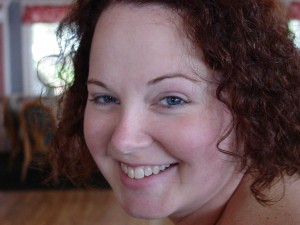 9. Let’s talk money. How much more profitable has self publishing been for you than
9. Let’s talk money. How much more profitable has self publishing been for you than
traditional publishing? If you’ve never been traditionally published, have you found
self publishing to be worthwhile? Please give examples.
Extremely worthwhile. I have complete control over my manuscript and cover. I get to pick and choose my beta readers, critique partners, editors, proofreaders, etc. I love having the control and I love being able to do for myself. It’s an amazing feeling when you hold that book in your hands and know that YOU did it.
10. Do you support your family with your self published earnings?
No, not yet. One day!
11. What has been the most difficult part of self publishing for you?
Being patient. Keeping positive.
12. What has been the most exciting or rewarding part of self publishing for you?
Seeing my dream come true. I’m a published author, and nothing can take that away from me.
It’s incredible.
13. There has been a stigma on selfpublished books making them seem of a lesser value
than those traditionally published. Why do you believe this is so? With the advent of
e-books and the saturation of easy-to-self-publish books, do you find this still to be true?
I think because anyone can write and publish, there is no gatekeeper to the self publishing
world. I think when you get a book laced with typos and grammar issues, then it casts a pall on all self published authors and their works. People tend to think that our novels are lesser because we aren’t good enough to find a real editor, an agent and a big name publishing house.
The few bring down the many. It is what it is, but hopefully with more and more authors going the self publishing route, the stigma will be lessened.
14. What question have I not asked about self publishing that you would like to pose and
respond to?
Is it hard to self publish?
This is one question that so many people ask me. I don’t think it is, which is why I think so many new authors are doing it. I found the process, especially using KDP Select to be amazingly easy. The hardest part, in my opinion, was writing the novel and finding a cover photo. The formatting of the manuscript wasn’t terribly hard, especially if you’re already well versed in Microsoft Word. The whole thing probably took me about 2 hours to complete, mostly because I had to fix a couple formatting errors. But that’s 2 hours from the time I set up my account on KDP until I received confirmation that my novel had been submitted.
Website: http://heathermccoubrey.com
Twitter: @h_mccoubrey
Amazon: http://www.amazon.com/ToLoveTwiceebook/dp/B00BWYEHH0/
B&N Nook: http://www.barnesandnoble.com/w/tolovetwiceheathermccoubrey/
1116093917?ean=2940148741381
28. Christy Dorrity
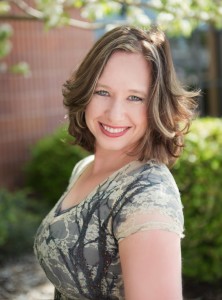 9. Let’s talk money. How much more profitable has self-publishing been for you than traditional publishing? If you’ve never been traditionally published, have you found self-publishing to be worthwhile? Please give examples.
9. Let’s talk money. How much more profitable has self-publishing been for you than traditional publishing? If you’ve never been traditionally published, have you found self-publishing to be worthwhile? Please give examples.
My cookbooks are a little experiment to see if I liked self pubbing. Because most of my sales have been while they were on free, it’s hard to compare. But the cookbooks have sold over 120,000 copies so far. Money wise, I’ve made around $1,000, which is small potatoes compared to a lot of people I’m talking to. I’m hoping that AWAKENING will do well. I’ll let you know!
10. Do you support your family with your self-published earnings?No. I’m lucky enough to be a stay at home mom, and I’m just starting out on my publication journey. But I have big plans.
11. What has been the most difficult part of self-publishing for you?Waiting. I want to get my books out faster. And my hubby is awesome to rein me in and tell me that I need to do another edit before it’s worthy to be seen by the world.
12. What has been the most exciting or rewarding part of self-publishing for you?I love the social aspect of writing, which sounds so backward! I love the writing community where I live—they are so giving and helpful. I’ve made so many great friends. Writing satisfies a burning need that I have to share my thoughts with the world and make a difference.
13. There has been a stigma on self-published books making them seem of a lesser value than those traditionally published. Why do you believe this is so? With the advent of ebooks and the saturation of easy-to-self-publish books, do you find this still to be true?Yes, and no. There are a lot of people out there that want content and they don’t care who publishes the story, as long as they can escape for awhile. Self-publishing gets a bad name when authors don’t take the time to edit, hire a cover designer, and do things right. Also, it’s my opinion that if you don’t value your work enough to make it look professional, and charge a competitive rate, you are buying in to the stigma as well.
14. What question have I not asked about self-publishing that you would like to pose and respond to?How much does it cost to self publish?
That depends. You certainly can do it on the cheap. Use talented friends whenever you can to cut costs. But the two things that you should always spend the money on are an editor, and a cover artist.
christydorrity@yahoo.com
29. Jennifer Raygoza
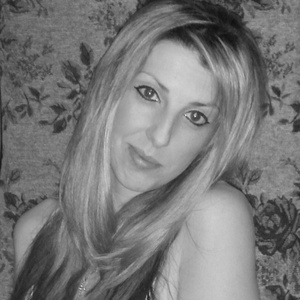 9. Let’s talk money. How much more profitable has self-publishing been for you than traditional publishing? If you’ve never been traditionally published, have you found self-publishing to be worthwhile? Please give examples.
9. Let’s talk money. How much more profitable has self-publishing been for you than traditional publishing? If you’ve never been traditionally published, have you found self-publishing to be worthwhile? Please give examples.
I like being self-published. I have no hard deadlines. I have control over my money and what I want to do with my work. I don’t have someone changing my story and book cover. I don’t have someone holding on to my pay. I have direct contact with whoever I hire.
10. Do you support your family with your self-published earnings?Yes. Any money I get helps support all of us, but it doesn’t pay a lot. I definitely couldn’t afford to live off just that money. I have the same dream all authors do- that your books are loved and adored and in the process maybe just maybe the books will blow up and go into other directions such as a TV show or Movie.
11. What has been the most difficult part of self-publishing for you?I had to learn everything. I knew nothing about the process when I jumped in. I honestly knew nothing about beta readers, so I originally had it edited once, through it out there and it was a mess. Somehow people still loved it. I had to learn where to market and how to market and that is still a thorn in my side.
12. What has been the most exciting or rewarding part of self-publishing for you?I love the fans. I love the amazing comments and good reviews that come in. It inspires me to write and reminds me why I do it- for them.
13. There has been a stigma on self-published books making them seem of a lesser value than those traditionally published. Why do you believe this is so? With the advent of ebooks and the saturation of easy-to-self-publish books, do you find this still to be true?Like I said above- I didn’t know what I was doing when I first dropped my book. I think I was close to crying when I realized what a mess the editing was. Thankfully I had someone re-edit it for me at no cost the second time and we went over it until our eyes crossed. So to answer your question some authors such as myself didn’t have the right guidance or steps to take and just basically threw their work out there. It doesn’t mean it’s bad. It just means it needs some editing or grammar correction. Think of it as diamonds in the rough. Some books just need polishing. I have learned so much that I think I have this down to an art for the next book. This stigma needs to take a hike. There are some amazing self-published books out there.
14. What question have I not asked about self-publishing that you would like to pose and respond to?Self-publishing is amazing but can be a really lonely road to take. Book stores will not carry your paperbacks. Even the independent book stores are distant. Libraries are reluctant to carry your book as well. If you self-publish you have to know that this is the case. You will be treated as if you have the plague. It breaks my heart because I have never saw anyone work harder than self-published authors.
Purchase Link http://amzn.com/B00C13CKVG
Website- http://theguardiansvampnovel.webs.com/
Facebook-https://www.facebook.com/theguardiansvampnovel
30. Anna del C. Dye
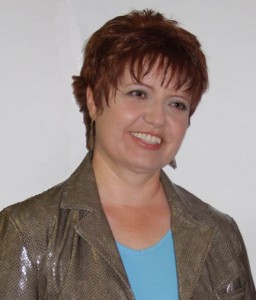 9. Let’s talk money. How much more profitable has self-publishing been for you than traditional publishing? If you’ve never been traditionally published, have you found self-publishing to be worthwhile? Please give examples.
9. Let’s talk money. How much more profitable has self-publishing been for you than traditional publishing? If you’ve never been traditionally published, have you found self-publishing to be worthwhile? Please give examples.
I have only been self-published, so I don’t know how to compare them. I do like self-publishing better. I get more money from my published paperbacks. If you talk e-books or electronic versions they are way cheaper and your returns will be less.
10. Do you support your family with your self-published earnings?Not at all. I am married though. I am happy if books are sold every month. How many does not preoccupy me. There are too many worries in my mind already. J I just love what I do and want others to enjoy it too. Money is not my goal, though it wouldn’t hurt me either.
11. What has been the most difficult part of self-publishing for you?Promotion. It takes hours. Because what works for one author doesn’t always work for you and you just have to keep trying everything you can get your hands on in hopes you will find the right one. This means less time writing.
12. What has been the most exciting or rewarding part of self-publishing for you?How fast my books get to amazon.
13. There has been a stigma on self-published books making them seem of a lesser value than those traditionally published. Why do you believe this is so? With the advent of e-books and the saturation of easy-to-self-publish books, do you find this still to be true?
That stigma comes from authors who have no idea how to write a book and refuse to learn. Now, I had no idea how to write a book and my first book shows it…but I learned and I am still learning. When you take the time to learn it shows in your books.
Another thing that I think has a lot to do with it is that anyone and their dog can publish a book and some authors think that they need to crowd the market with a book every month of the year… I can’t see how you can do that and produce an awesome product every time.
Right now, a lot of reviewers and readers are willing to give a chance to indie books and we need to make sure that our books are worth their time and not close that door on ourselves.
It used to be that a traditional publishing company book was thought to be perfect…talking editing and such. That is not true anymore. I have read books from various publishing companies that had so many mistakes that it makes you wonder if they are really traditional. I have seen it in local companies and in companies around the USA. Now if you take in consideration my limited English and being able to find those mistakes…it really makes you wonder what happened to them.